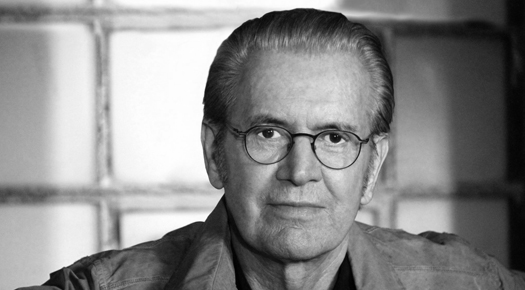
A veteran journalist, who is the only reporter to have been allowed to operate as an embed with Islamic State and escape alive, recently revealed that the terror group plans on eliminating hundreds of millions of people from the face of the earth in the largest religious holocaust the world has ever seen.
Describing Islamic State as a ‘nuclear tsunami’, 75-year-old Jurgen Todenhofer –who earlier served as a member of parliament in Germany before becoming a war reporter in 2000– details his experience with the terror group in a newly published book titled ‘Inside IS – Ten Days in the Islamic State’.
Todenhofer, who spent 10 traumatic days on the caliphate’s frontline, dodging bullets and escaping death threats while being driven around by the notorious Jihadi John –whose real name is Mohammed Emwazi– is convinced that the west does not have the necessary resources to militarily defeat the terror group.
“The terrorists plan on killing several hundred million people. The west is drastically underestimating the power of ISIS… They are much stronger than we here believe. They now control land greater in size than the United Kingdom and are supported by an almost ecstatic enthusiasm the likes of which I've never encountered before in a war zone. Every day hundreds of willing fighters from all over the world come… They are the most brutal and most dangerous enemy I have ever seen in my life. I don't see anyone who has a real chance to stop them. Only Arabs can stop IS. I came back very pessimistic,” he writes, while comparing them to a “nuclear tsunami preparing the largest religious cleansing in history.”
While his critics have suggested Todenhofer was allowed to build such a close relationship with Islamic State because of his reputation as a vocal critic of American policies in Afghanistan and Iraq, the journalist said that he has risked his life from the first day.
“This project was opposed by my family for seven months. My son ultimately accompanied me - against my will. He meant to protect me. And he filmed there,” he said.
Todenhofer was allowed to contact his family only once, on the third day after his arrival, from a cyber café, as both he and his son had to surrender their mobile phones to their hosts.
He said, “My family didn't hear from us for seven days. It was very difficult for my daughters.”
He explained how his deal was finalized after intense negotiations with leaders of the caliphate, via Skype and over the course of several months, which involved the hammering out of all security details. He also prepared his will before leaving for the project.
“Of course I'd seen the terrible, brutal beheading videos and it was of course after seeing this in the last few months that caused me the greatest concern in my negotiations to ensure how I can avoid this. The beheadings have been established as a strategy which they wanted to spread fear and terror among their enemies. This worked well - look at the capture of Mosul taken with less than 400 fighters! Anyway, I made my will before I left… People there live in shell holes, in barracks, in bombed-out houses. I slept on the floor; if I was lucky, on a plastic mattress. I had a suitcase and a backpack, a sleeping bag,” he said.
Photo Credits: Sagwas
